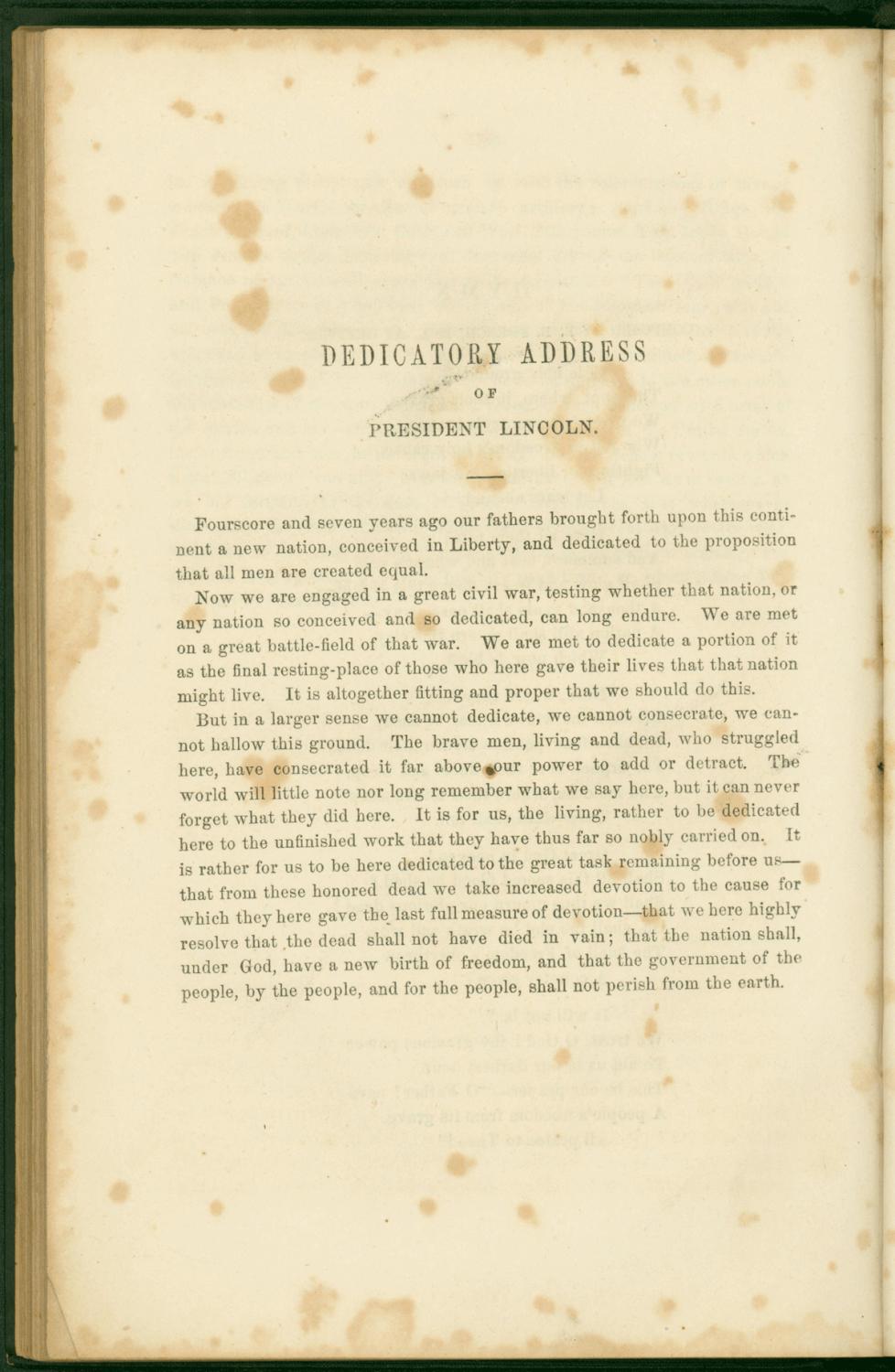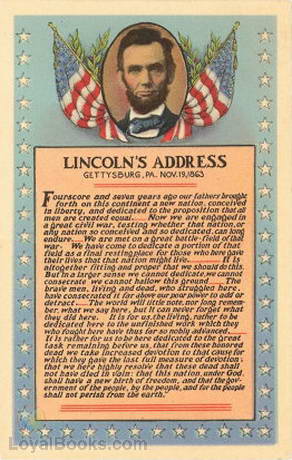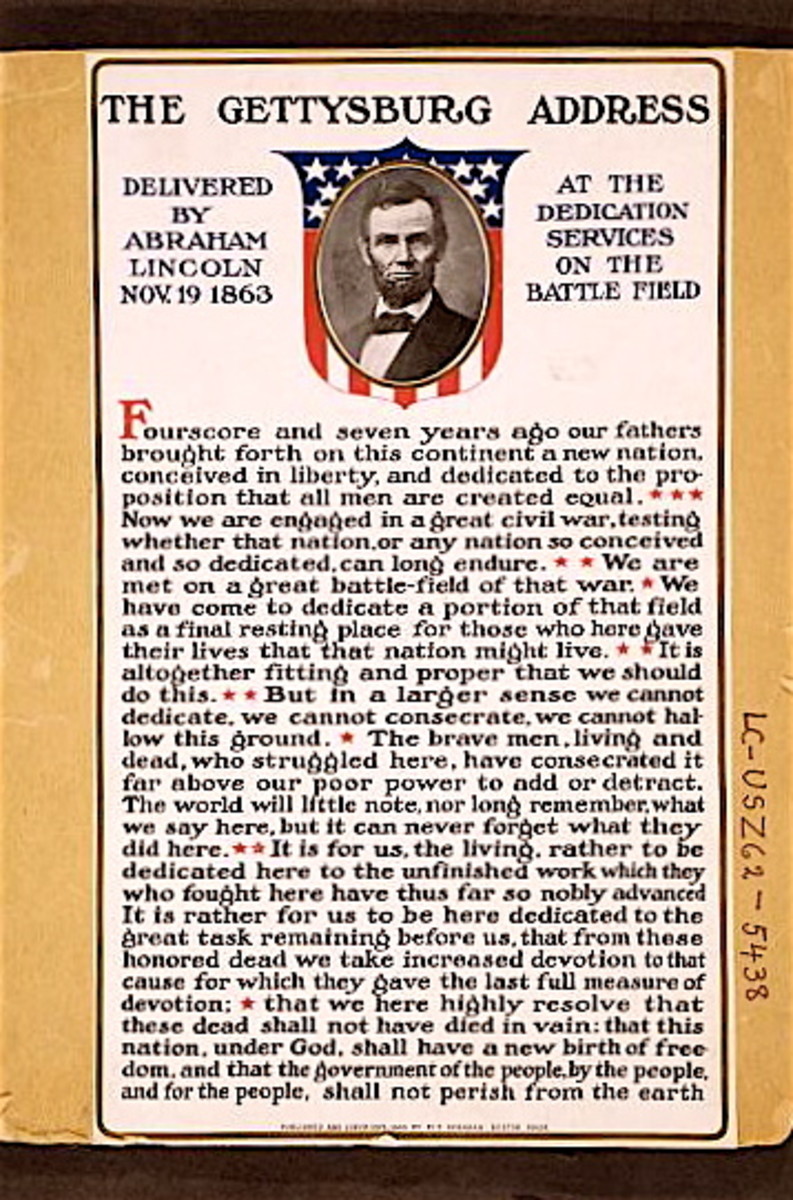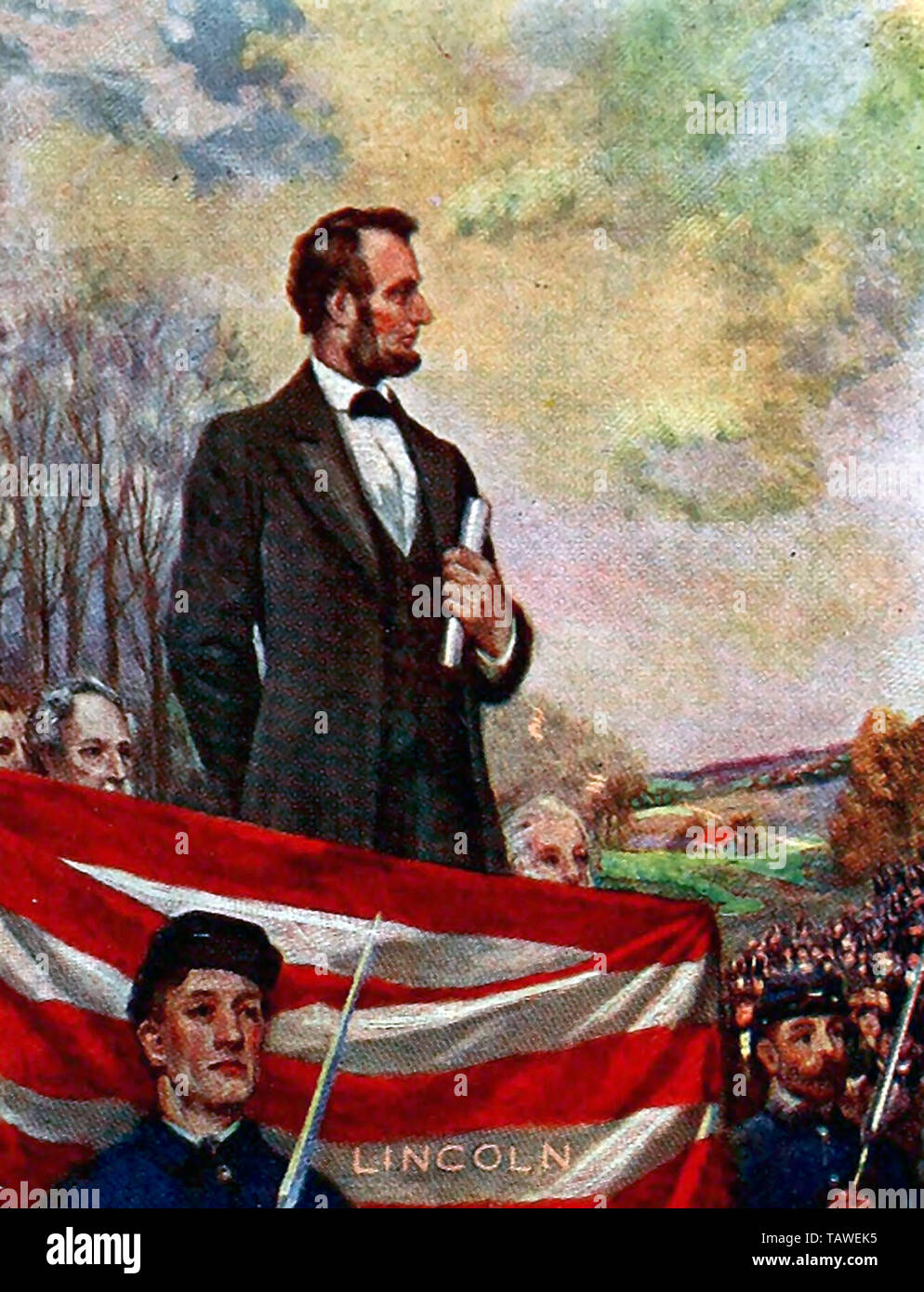
We have come to dedicate a portion of that field, as a final resting-place for those who here gave their lives, that that nation might live.

We are met on a great battle-field of that war.

Now we are engaged in a great civil war, testing whether that nation, or any nation so conceived, and so dedicated, can long endure. "Fourscore and seven years ago our fathers brought forth, on this continent, a new nation, conceived in liberty, and dedicated to the proposition that all men are created equal. Indeed, Everett immediately afterward wrote to Lincoln that “I wish that I could flatter myself that I had come as near to the central idea of the occasion in two hours as you did in two minutes.” Despite (or perhaps because of) its brevity, since the speech was delivered, it has come to be recognized as one of the most powerful statements in the English language and, in fact, one of the most important expressions of freedom and liberty in any language. Moreover, he tied both to the abolition of slavery-a new birth of freedom-and the maintenance of representative government. Lincoln tied the current struggle to the days of the signing of the Declaration of Independence, speaking of the principles that the nation was conceived in: liberty and the proposition that all men are created equal.

Then Lincoln delivered his message it took two minutes. The featured speaker for the occasion was Edward Everett, a former dean of Harvard University, and one of the most famous orators of his day. President Lincoln was asked to deliver a message at the dedication of the Gettysburg Civil War Cemetery on November 19, 1863. victory there marked the turning point of the war. troops were killed, while 3,900 Confederates died.

It was one of the bloodiest battles of the United States Civil War, with over 51,000 casualties-soldiers killed, injured, or otherwise lost to action-combined. The Battle of Gettysburg was fought between July 1 and July 3, 1863.


 0 kommentar(er)
0 kommentar(er)
